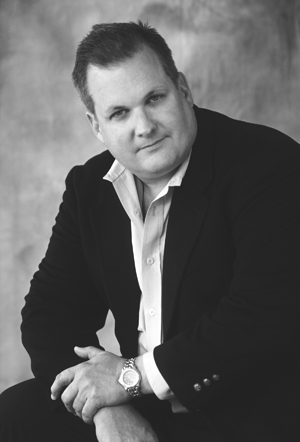A frequent contributor to
lawbuzz.ca, a web site that shut down after it was hit with a defamation suit, is identifying himself as a prominent York Region lawyer and is speaking out against the site’s owners for naming names in an ongoing libel case.
Russell Howe, a personal injury lawyer in Aurora, Ont., and former president of the Ontario Trial Lawyers Association, faces additional libel litigation for comments he made on Lawbuzz, an online discussion forum.
He allegedly posted under the moniker Lawdog and is named in a statement of claim as John Doe #1.
The initial lawsuit for statements on Lawbuzz that were potentially defamatory was settled out of court when
AdviceScene, another legal web site, came to an agreement with the owner of Lawbuzz.
According to a corporate profile search, Lawbuzz’s address is the same as that of the Toronto office of ZSA Legal Recruitment. But Samantha Leach, ZSA’s chief operating officer, says Lawbuzz operates independently through the work of volunteers.
In the no-cost settlement, Law Buzz Canada Ltd. agreed to post an apology and identify four of its registered members to the plaintiff.
“Is there a principle they could have followed that if they offered anonymity, they should have stuck up for the contributors? That would have been nice,” Howe tells Law Times.
However, he adds that any protection would have been inconsequential for him as he never really tried to remain anonymous on Lawbuzz.
He occasionally signed his postings with his first name while at other times attaching his e-mail address or referring to cases he had acted on.
In addition, he claims he never made any libellous comments about AdviceScene or its founder, Nancy Kinney.
The Victoria, B.C.-based site connects members of the public with free legal advice and information from lawyers themselves.
In March 2009, a discussion thread on Lawbuzz made disparaging and untrue comments about AdviceScene, its model, approach, and legitimacy, Kinney alleges.
According to the statement of claim against Lawbuzz, comments made by four contributors called the web site a “scam” and compared it to viral marketing.
They also allegedly said AdviceScene was impersonating a judge who contributes to the web site and was in violation of law society regulations, Kinney claims.
Kinney notes she initially thought the Lawbuzz members were mostly law students only to discover later that they included senior lawyers.
“I thought, ‘What’s this going to do for my chances to get lawyers to join my site?’”
The key to AdviceScene’s business model, Kinney explains, is the participation of experienced lawyers, the same kind of professionals she says were unfairly criticizing her site.
“[Having] people with a lot of influence saying, ‘Don’t go on that site,’ I think that hurt us.”
She claimed general damages of $500,000 but says the action wasn’t about money.
“It was about making sure that lawyers know this is not OK.”
Kinney’s lawyer, Antonin Pribetic, says two of the four posters have been identified and a fresh lawsuit will be in the works once the names of the remaining two are verified.
“It highlights how the right to anonymity is not absolute,” he says.
In initiating the original claim, Pribetic explains that identifying Lawbuzz’s owner proved to be a challenge.
According to an AdviceScene factum, Law Buzz Canada Ltd., “in an effort to maintain its web site’s anonymity, is intentionally or unintentionally misleading the public regarding its true corporate identity.”
The corporate profile search lists the web site’s president and sole director as Karen Hannaford. At the same time, its registered address is within the same University Avenue suite as ZSA. But Christopher Sweeney, ZSA president, says the recruitment company owned Lawbuzz “years ago” but no longer.
However, the company acted on behalf of Lawbuzz in negotiating a settlement, says Leach.
“This was just a charitable act. We used to advertise on the site,” Leach says, noting ZSA has since cut off its limited support to Lawbuzz.
According to Alan Shanoff, a lawyer who teaches media law at Humber College, compelling a web site’s owners, rather than Internet service providers, to provide the identities of anonymous users is nothing new.
“You go after the weakest link. And in this case, they correctly saw what the weakest link was,” Shanoff says.
The illusion of online anonymity pervades, Shanoff adds, even among lawyers.

As to the postings themselves, he draws an important distinction between opinion and fact.
“Criticism has to be based on something. You can’t have an opinion based on mere speculation,” Shanoff explains.
“Some of that doesn’t sound like opinion to me. It sounds like an assertion of fact,” he adds, noting the available defences for assertions of fact aren’t the same as those for opinions.
Quoted in the statement of claim, however, are opinions by Lawdog that don’t even refer to the plaintiff, Howe says.
“Somehow, they came to the conclusion I was talking about them,” he says. “I wasn’t.”
In the comment, Howe allegedly wrote: “Anonymous legal advice is a crock. If you really want to give legal advice and are qualified to do so, put your money where your mouth is. Too many cowards on the Internet as it is.”
But AdviceScene’s legal information isn’t anonymous as lawyers on the site attach their names to what they say, Howe notes, adding he has drafted a statement of defence and looks forward to hearing AdviceScene explain how it suffered damages. None of the allegations in the cases have been proven in court.
In the meantime, by all accounts, Lawbuzz, at least in its prior form, has been shut down with only its apology remaining at the web address.
But Kinney says it was never her intention to bring Lawbuzz down.
“I don’t believe in just shutting down forums for voicing their opinions,” she says. “But they have to know where to draw the line.”

 As to the postings themselves, he draws an important distinction between opinion and fact.
As to the postings themselves, he draws an important distinction between opinion and fact.